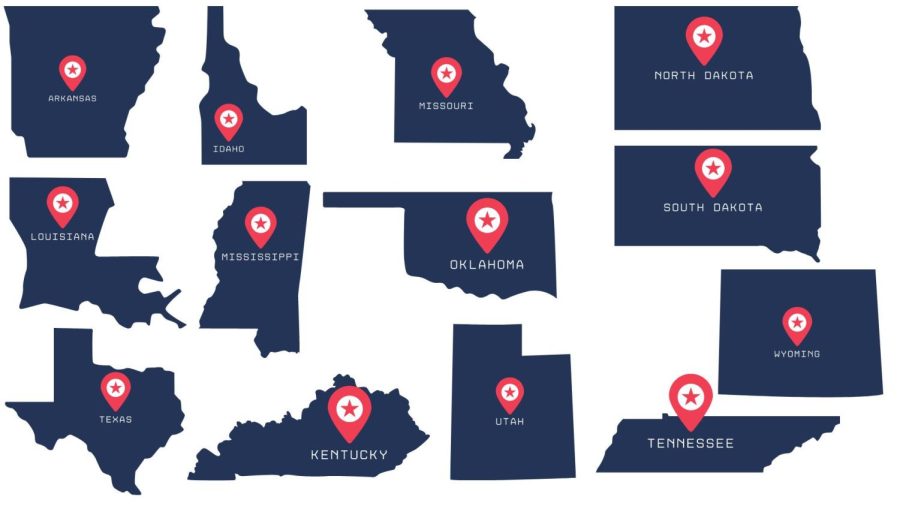Trigger laws: What they are, how they affect the future
13 states have trigger laws, which criminalise abortion after the decision was made to overturn Roe v. Wade. The states are Arkansas, Idaho, Kentucky, Louisiana, Mississippi, Missouri, North Dakota, Oklahoma, South Dakota, Tennessee, Texas, Utah and Wyoming
July 11, 2022
DeKALB — Abortion was made illegal in 13 states once the U.S. Supreme Court overturned Roe v. Wade in June. Illinois does not criminalize abortion and has no trigger laws in place.
Roe v. Wade was established in 1973, giving everyone the Constitutional right to receive an abortion.
The overturning of Roe v. Wade does not automatically declare that abortions are illegal nationwide; instead, it gives individual states the choice to criminalize them.
As of now, those seeking an abortion in Illinois can still receive one legally.
In 2019, Illinois enacted the Reproductive Health Care Act which further enabled individuals to be able to make reproductive health care decisions for themselves.
Illinois also repealed the Parental Notice of Abortion Act on June 1. The law previously required that a guardian must be notified before a minor could receive an abortion.
“Normally when a decision comes down, states oftentimes have to do something to pass statute to make it illegal to perform an abortion, but these guys (the states with trigger laws in place) have already passed legislation and it was therefore effective as soon as Roe came down,” said Robert Jones, an associate professor of law at NIU.
Jones said some trigger laws became effective immediately while others took a few hours to become certified by an attorney general.
Doctors performing an abortion in states with trigger laws, at the time the decision was being made, grew fearful they would land in legal trouble, Jones said.
In Wisconsin, around 70 scheduled appointments for an abortion at Planned Parenthood were canceled, according to Wisconsin Public Radio.
“Women who were in Planned Parenthood clinics on Friday morning awaiting abortions were told that they couldn’t be done in Wisconsin,” according to Planned Parenthood Wisconsin President Tanya Atkinson. “Instead, they were given help with scheduling appointments in other states”
Jones said as of now, it is legal to go to a different state to have an abortion if their state of residence has made them illegal. He believes that the number of abortions performed in Illinois will go up because of the bordering states that have criminalized the procedure.
“There’s not a single state that has passed a law saying, ‘you can’t travel,’” Jones said. “Some are talking about it, some have proposed it but none have passed yet.”
Planned Parenthood expects 14,000 people to travel to Southern Illinois this year, including thousands from Missouri.
The Illinois Department of Public Health estimates that around 10,000 women traveled to Illinois to receive an abortion in 2020, 29% more than the year prior.
In June, Illinois Attorney General Kwame Raoul’s office released a guide outlining reproductive rights in Illinois. The guide covers the right to an abortion and other general health care information.







